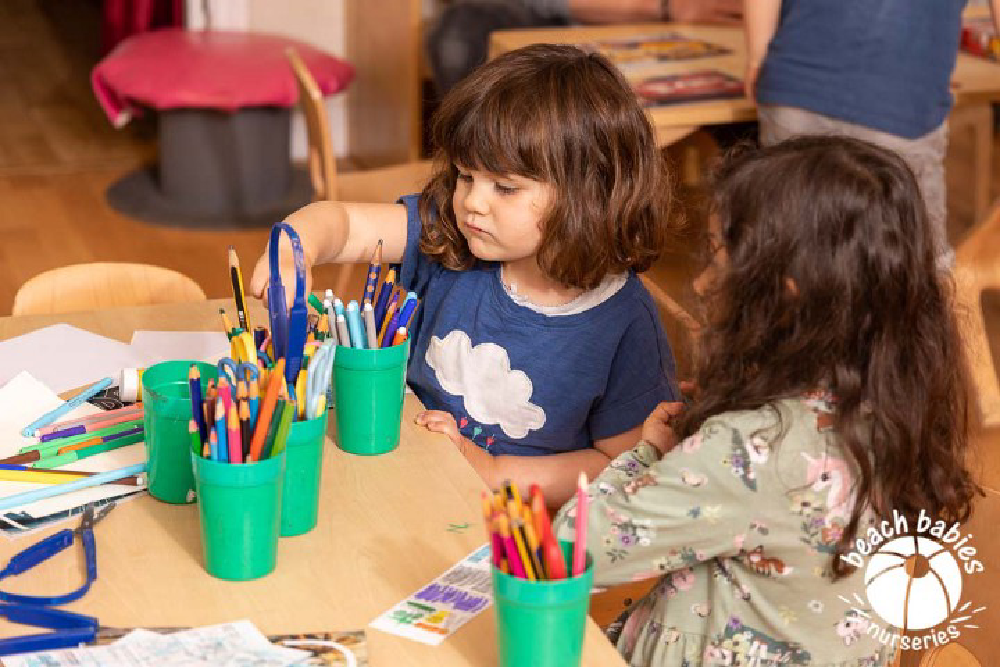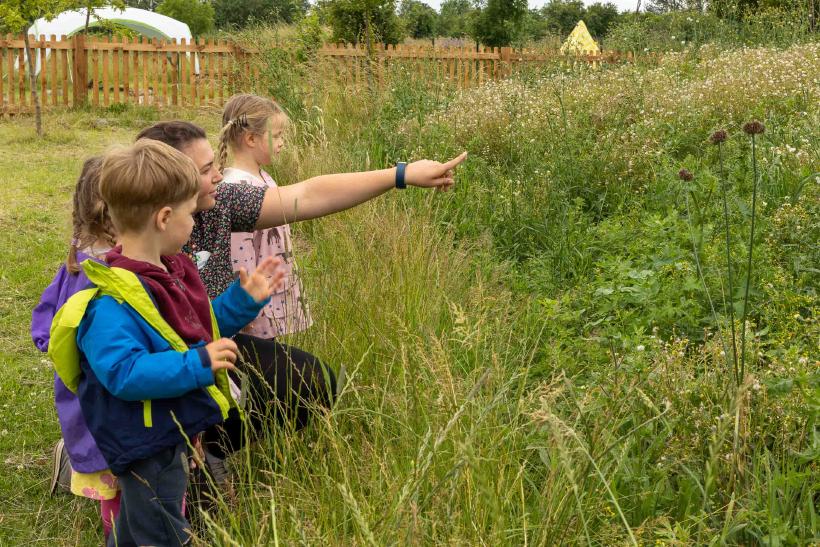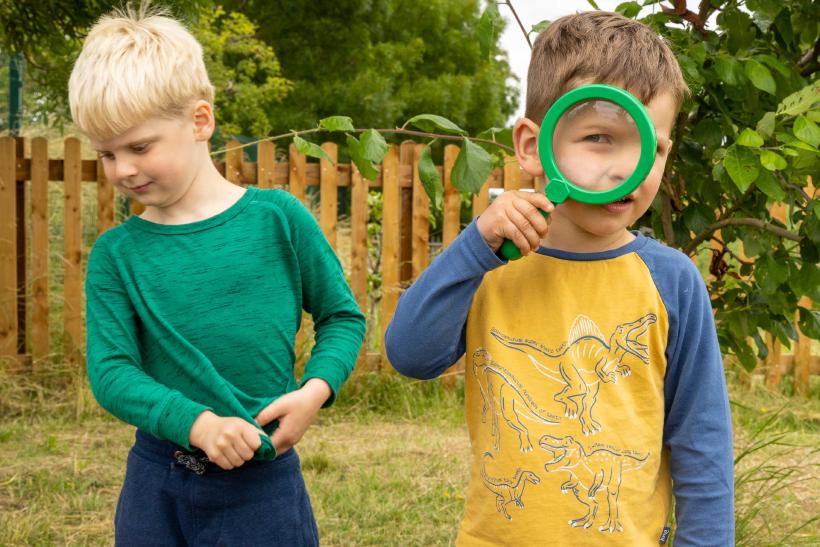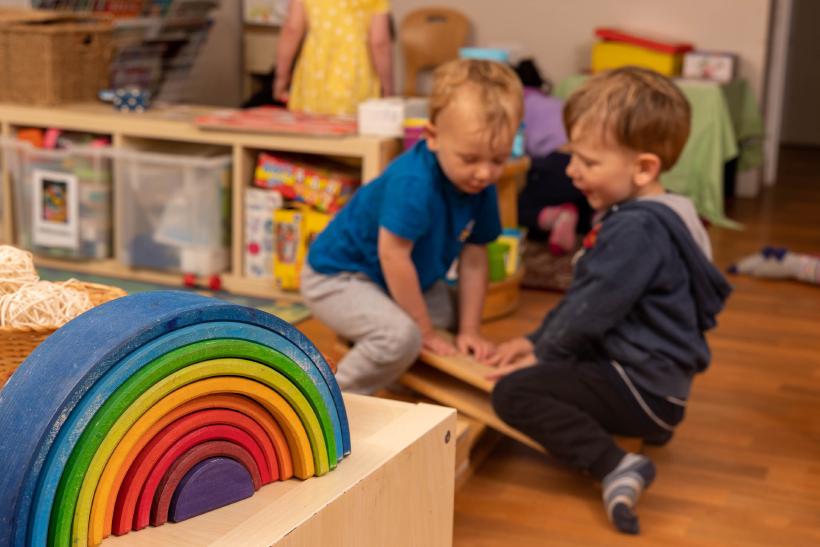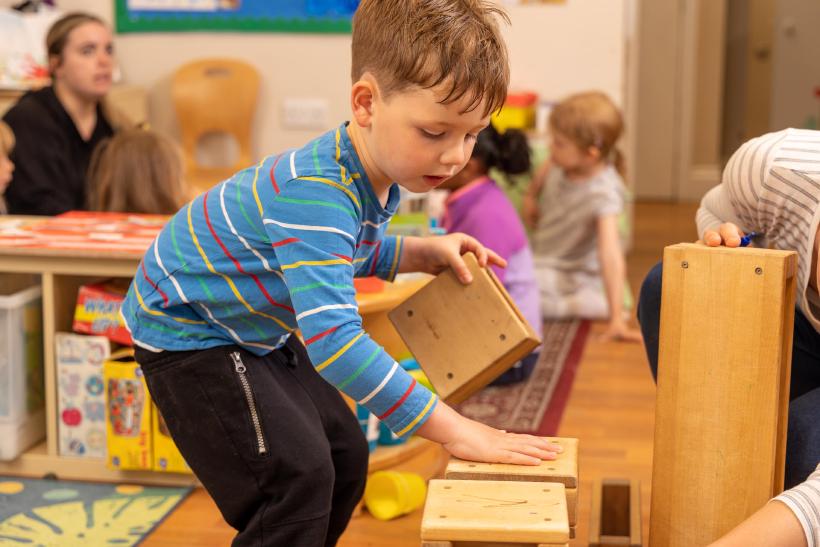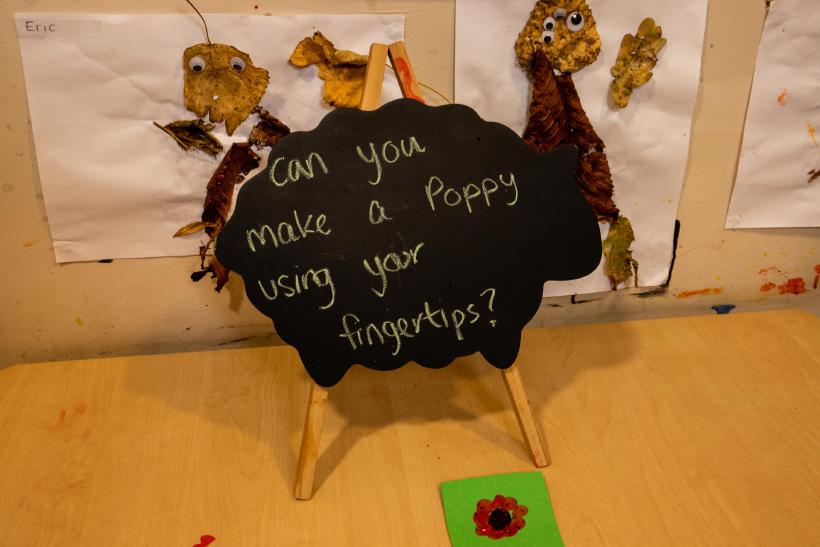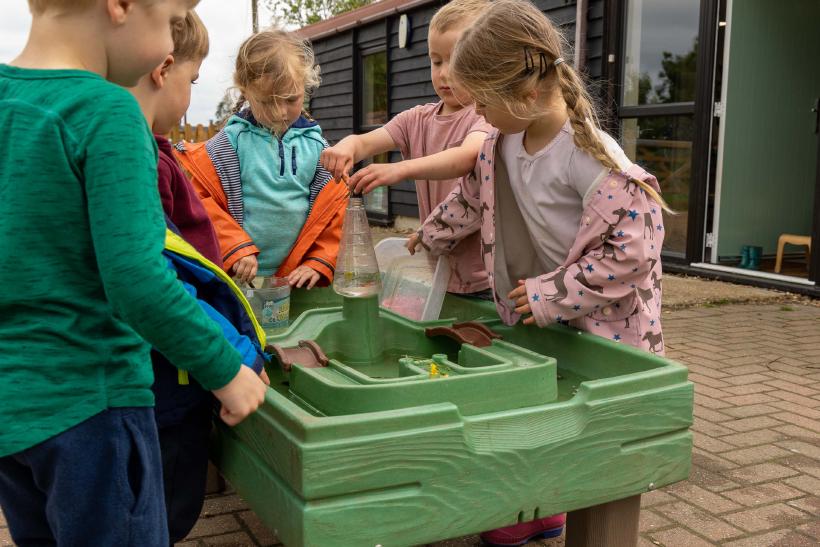This is the time of year that many parents now face the prospect of their child starting school next year. It may be a positive and exciting prospect for some but for many, it raises worries and concerns.
‘Is my child mature enough?’
‘Will the teachers notice if they need help, will they be able to ask for it if not?’
‘How will they cope?’
To thrive at school a child must be able to focus and pay attention, work with their peers and take guidance from their teachers. These skills are more important than knowing how to blend letter sounds or do simple maths tasks. If a child can work with and learn from others they are set to do as well as possible at school.
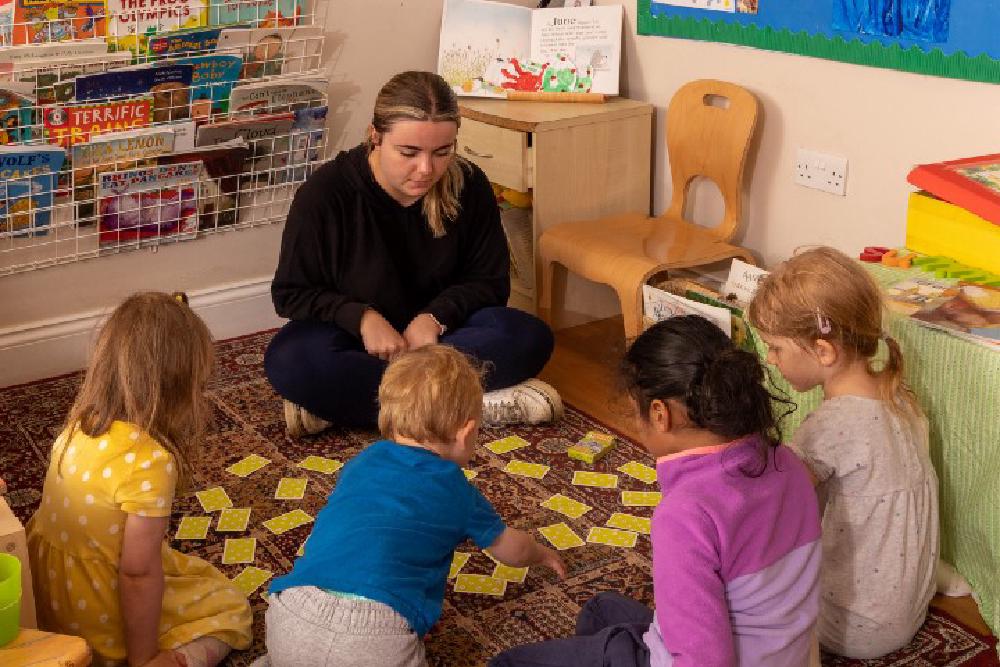
Important skills are learnt alongside others
In England, children are expected to start school in September after they turn four years old. This means that some children in the year could be almost 12 months apart in age and maturity. Legally you can delay your child’s entry to school (defer) until the term after their fifth birthday. This means that if your child was born between 1st April and 31st August they can start school in the September after they turn 5 years old.
There is a large difference between the curricula in Reception and Year 1, the former being play-based and the latter the more formal schooling that we all remember. This early start with formal education is at odds with much of the world, and in the latest world education ranking report, PISA, England does not make the top ten. Of the countries that do, only one, Finland, expects a child to start their education before the age of six.
Whilst you have the legal right to delay your child’s school entry until the term after they turn five, summer-born children (1st April to 31st August) do not have an automatic right to start in reception. This means that they would usually join into Year 1, which follows the more formal schooling structure of the National Curriculum. This is a very different experience to reception and a struggle for many five-year-olds. Valid reasons for wanting to delay your child’s school entry include immaturity, usually with managing their emotions, slower than average speech and language development and significant illness affecting their preschool years.
Yet it is usually a simple process to apply for deferred entry so that your child joins the school in reception when they have just turned 5 years old. You:
1. Complete an application form
2. Get supporting letters from your child’s preschool and the school they will go to
3. Apply
You still need to apply for a place in what would be their usual year of school entry but that is a formality in case they are unable to secure a deferred entry place.
Advantages
- Your child will be more mature, which means more able to cope with and express their emotions and more able to explain what they are thinking.
- They are physically stronger, they can sit and pay attention for the longer periods of time required at school.
- They are more independent, this affects everything from coping better with snacks and mealtimes to resolving conflicts without needing an adult to do it for them.
- They have improved concentration and can benefit from the teaching in a much better way.
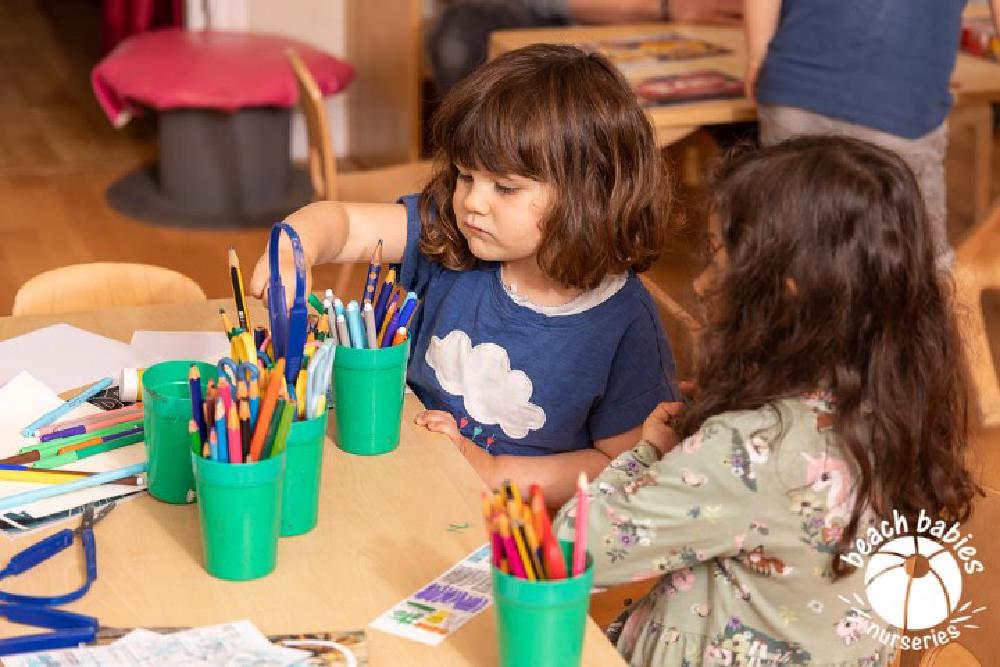
There are numerous benefits of deferring placement
Long term effects
The effects of starting school when they are more immature than their peers can lead to a snowball effect that continues throughout their schooling. They struggle to concentrate for as long in reception so learn the basic skills less well. In year one they are starting on the back foot and playing catch up, struggling with the foundations that hard-worked teachers do not have the time to go back over.
This carries on through the years. As an example, a child who thinks they are bad at maths in the middle of primary school will be one who is always trying to catch up in secondary school. The one that many parents then engage a tutor to help in an effort to ensure success in their GCSE. This child then becomes the adult who was always made to feel ‘bad’ at maths and avoids roles that they assume they will not manage well.
Parents who have deferred their child’s school entry
Over the years we have supported many parents who have chosen to defer their child’s school entry year. The numbers currently show that around 10% of children leaving Beach Babies, stay with us for an extra year.
Without exception, every single parent has said it is the best decision they have ever made. Their children have started school ready for the new challenges that school brings, they thrive in the learning environment it offers, they work well with their teachers and their peers and as a consequence, their parents are happy and confident that their children are doing well at school.
If you are even considering deferring your child’s school entry then talk to their preschool teachers, talk to me, talk to friends, talk to their prospective school. Fully explore the option and then make the right decision for your child, based on their own individual skills and abilities.
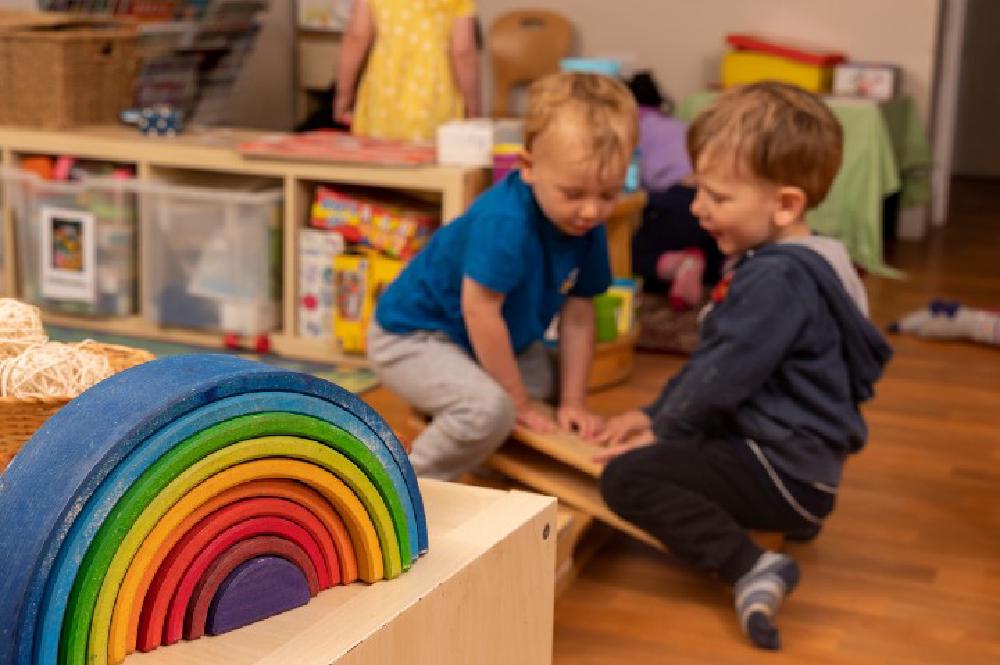
It's important to make the right choice for your child
